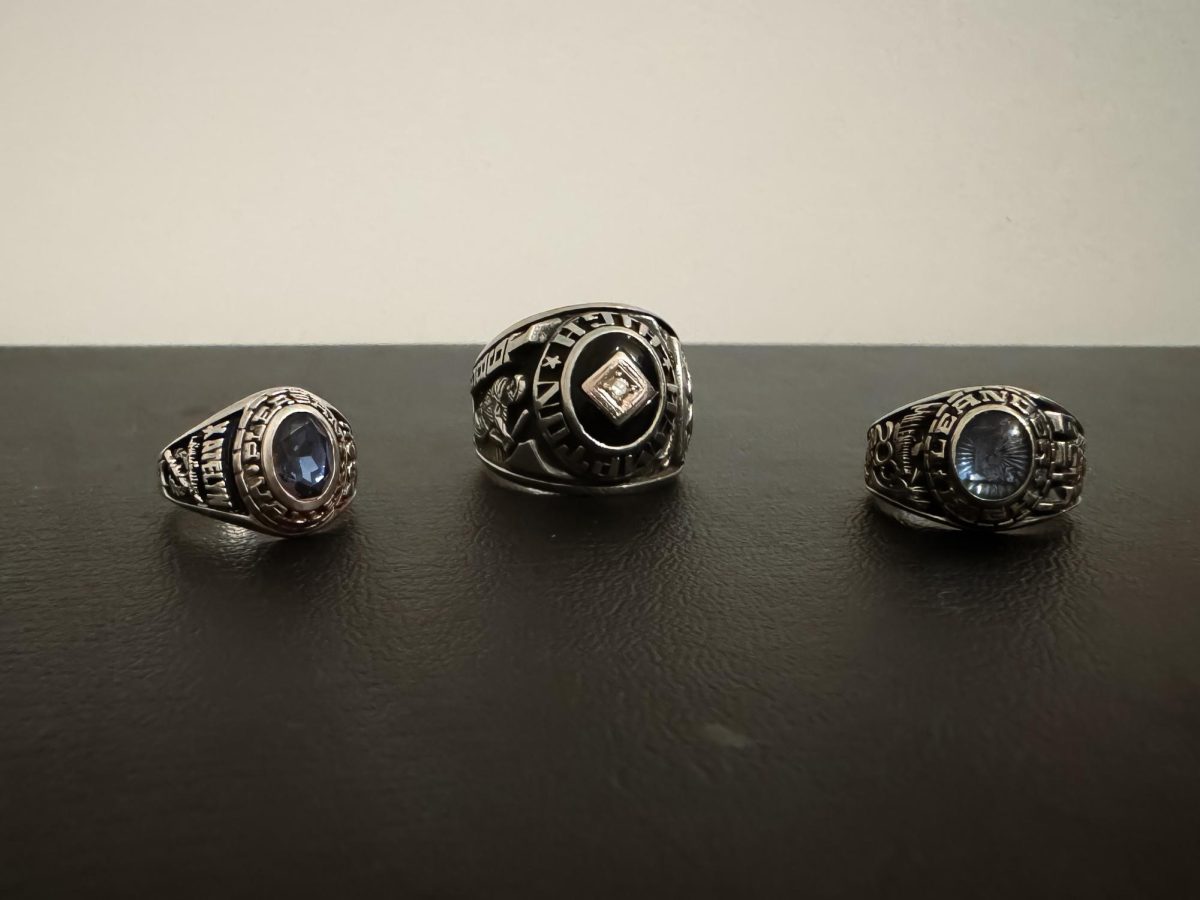“I was born in the wrong generation.”
This phrase is uttered by people of all ages, perhaps with a hint of nostalgia for a certain fashion trend or a longing for a time when life was simpler without the burdens of technology.
Often, people who use this phrase resonate with an era’s music, culture, fashion and lifestyle. Whether it’s an obsession with Marilyn Monroe’s Hollywood persona or a fascination with the frenzied Beatlemania, it is human tendency to feel nostalgia for a time they never had the chance to experience.
But viewing history through the lens of a highlight reel has undeniable issues.
The romanticization of past eras has blown out of proportion— people not only wish to have experienced the trends throughout history, but also to have experienced day-to-day life during that era. Taking inspiration from an era’s clothing and fashion can be done innocently, but when these trends are taken out of their historical context, the significance of the social progress that has been achieved since then is completely erased.
This practice can be observed through the romanticization of the “Victorian Era,” the period between approximately 1820 and 1914, marked by Queen Victoria’s reign, the Industrial Revolution, lavish gowns and thriving theater.
Overlooked is the reality: women during this period were forced into working in households, reproducing and raising families. The foundation of society was built upon the doctrine of separate spheres, which stated that men and women had fundamentally different roles in society and existed in separate realms. Victorian society was highly hierarchical, with gender and class being the defining factors of an individual’s position in society.
These incomplete narratives are only further promoted by period dramas like “Bridgerton,” which show unrealistic portrayals of women in society, perpetuating the idea that all was well. “Bridgerton” has faced backlash for glossing over uncomfortable parts of history in favor of a simplistic recreation of racial equality that never was. Although it’s a fictional tale, “Bridgerton” ignores and dismisses the complexities that arise with the show’s themes of social hierarchy, imperialism and segregation.
Senior Sarah Chen has seen the show, noting how it has influenced the way audiences perceive the time period in which it was set. “A large goal with shows like Bridgerton that are set in previous time periods is to promote escapism. With the regency period that Bridgerton is set in, a certain aesthetic is trying to be upheld,” she continued. “Creating an entertaining historical time period show will always lead to the glamorization of societal issues and with Bridgerton, it’s race.”
Although the show has been praised for showcasing a diverse cast, when watching the show, Chen couldn’t help but notice areas where it fell short. “I understand the casting choices have been to promote diversity on screen but when other topics like gender and class are being so heavily addressed in the show, it feels lazy to dance around the subject of race.,” she continued.
This type of misinformation has been circulating on TikTok as well, with videos of people posting about wanting to be lobotomized housewives in the 1950s. The idea that women of the 1950s led happy, fulfilling lives is completely inaccurate. By 1952, an estimated 50,000 mostly female patients had been lobotomized and psychiatric drugs like Valium and Librium — known as “mother’s little helpers” as described by the Rolling Stones in a 1966 song— were disproportionately prescribed to housewives to help them cope with the mundane tasks of their everyday lives.
Senior Anagha Sudhindra recognizes the role that social media plays in popularizing past eras. “The algorithms used by popular social media platforms often push videos and posts that many people resonate with. Posts about the high points of other generations instill a sort of comfort and longing in viewers, which leads to more engagement,” Sudhindra stated.
Sudhindra, like many others on social media, finds herself falling into this cycle too. “If I come across a post romanticizing 90s fashion or 70s architecture, I immediately fall in love with that era without considering the actual reality of that generation. It’s really easy to fall into the social media’s tunnel vision version of the past if the positives are all people really see. A lack of widespread informative news contributes to this phenomenon as well,” she continued.
When a certain era is romanticized by people in our current generation, they cherry-pick parts of that period and take it out of its historical context—and this is where the phrase “I was born in the wrong generation” grows problematic.
While people are busy glamorizing the past, remember how far we have come as a society in just the past 100 years: The 19th Amendment, giving women the right to vote, wasn’t ratified until 1920, the birth control pill wasn’t made accessible to the public until 40 years later and segregation in public places and employment discrimination wasn’t made illegal until the Civil Rights Act of 1964.
To say you are “born in the wrong generation” undermines the plights of people from previous generations— our predecessors that fought for the rights we have today. This one tone-deaf phrase washes over the countless sacrifices people have made throughout history.
There are still glass ceilings yet to be broken and deeply embedded inequalities yet to be addressed, but it is impossible to deny the fact that people in our current society are far more liberated than past generations. Glamorizing life of a different era stunts social progress because although we currently live in the most progressive society in history, there are still many more societal issues to be remedied.
With the recent overturning of Roe v Wade and Iowa’s proposed anti same-sex marriage bills, it seems like society is stepping backwards in terms of social progress. People who glamorize past eras are dissatisfied with the world around them— and they have the right to be. But by holding a pessimistic view of modern society, we are only stunting our own advancement by essentially giving up on progress.
Facing our current society is an inevitable reality that cannot be avoided, for there is no real way to escape into a different generation. Now more than ever, it is time to take action — not the time to give up on the future and find solace in a version of the past seen through rose-colored glasses.



























Jalen • Mar 24, 2023 at 2:30 pm
This relatable topic is filled with relevant information towards the ironic phrase, “I was born in the wrong generation.” This article provides great insight into the past and the harsh truth of the past as well.